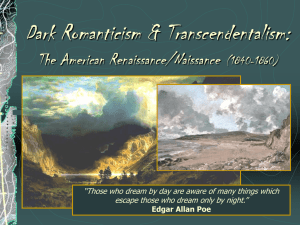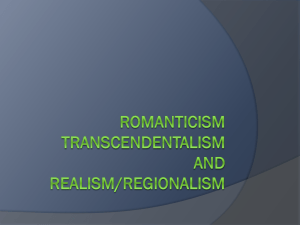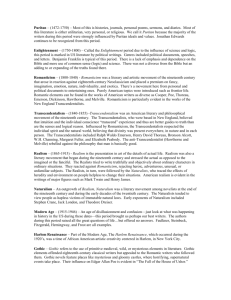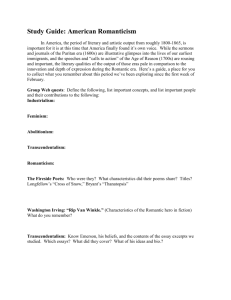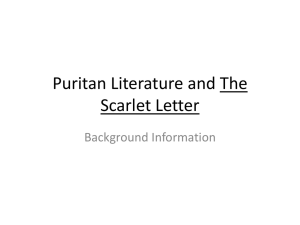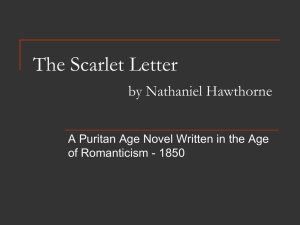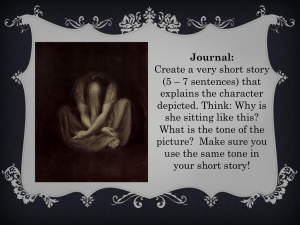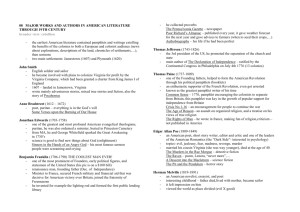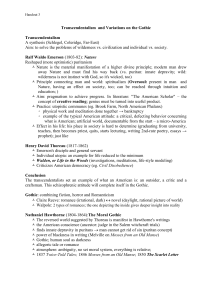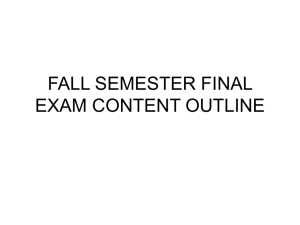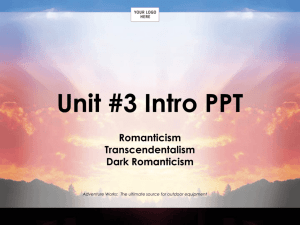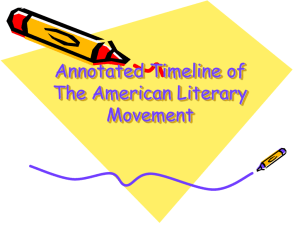American History Powerpoint
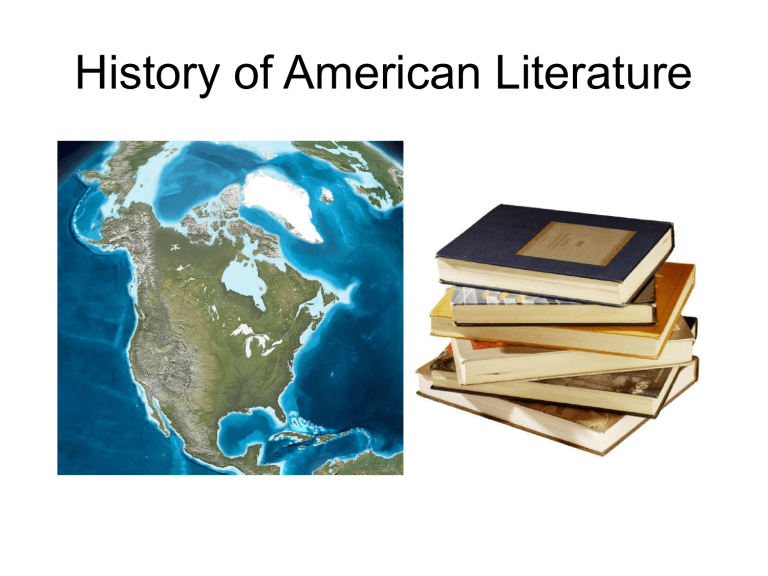
History of American Literature
Native American Experience
No written tradition.
History, legends, and myths were passed on by Oral Tradition.
Guess what happened…
To Native American stories and traditional lore?
You guessed it…
Much of the history and tradition was lost when the Europeans came.
Christopher Columbus, John Smith, William
Bradford and others are some of the earliest voices in what we come to know as American Literature.
Pilgrim Fathers: settling in 1600’s
After the explorers, another kind of American founding narrative.
The Bible, especially Genesis and Exodus, shape the Puritan’s vision of the New World.
Puritan Tradition
• Daily struggle with sin
• Bible would help them through torments of human weakness.
• A plain, straightforward style of writing was highly prized.
The Crucible
The Crucible was set in the Puritan era and
Arthur Miller – in addition to commenting on
McCarthyism – also used the play to criticize parts of our
Puritan heritage.
“Man of Adamant”
Nathaniel Hawthorne used this short story to criticize the rigid, unforgiving religion he associated with his
Puritan ancestors.
Remember Edward’s scary sermon?
Jonathan Edwards
“Sinners in the Hands of an Angry God”
Edwards wanted to make Puritanism vibrant for the 18 th century and to re-establish its main doctrines on sound philosophical basis.
Emotional power of his sermons helped spark the Great Awakening (late 1730’s)
Revolutionary Years
Discourse before the 1776 Revolution called forth the language of politics rooted in ancient Greek and Roman states.
Americans again ask themselves:
This is a second birth for Americans, as they wonder…
What is the meaning of the country we are forming in America?
Thomas Jefferson
“The Declaration of
Independence”:
• Major act of brain power!
• Faith in the power of pubic speech to govern sensible men of good will.
Thomas Paine
• “Common Sense” 1776 – gives reasons for separation from Britain.
• “The American Crisis” 1776-1783. Series of 16 pamphlets which spoke directly to current military situation.
Romanticism: Europe late 18 th c.
Romanticism in Europe
From Europe came Romanticism, a literary movement that emphasized:
• heightened interest in nature
• emphasis on the individual's expression of emotion and imagination
• departure from the attitudes and forms of classicism
• rebellion against established social rules and conventions.
American Naissance/
Transcendentalism
America begins to come to maturity in art and culture with the fabulous five:
Emerson, Thoreau, Hawthorne, Melville and
Whitman.
Ralph Waldo Emerson
• His book Nature published in 1836 is seen as the start of Transcendentalism and a uniquely American literary style
Changing view of Nature
• The Puritans saw nature as wicked and threatening, a place where the devil might live.
• For Transcendentalists, nature was not a force to be dominated, but something to speak to one’s soul.
Thoreau-Walden or Life in the Woods
During Thoreau’s stay at Walden Pond, his observations of nature and his thoughts, become an important Transcendentalist text.
American Gothic
-- Dark Transcendentalists
Edgar Allen Poe, Hawthorne and Melville are also influenced by Romanticism and
Transcendentalism, but they have a darker outlook on life.
Edgar Allen Poe
Remember “The Black
Cat”?
Poe’s imagination is decadent with no suggestion of God or a moral world.
American Gothic
Poe and Hawthorne used gothic elements such as grotesque characters, bizarre situations and violent events in their fiction.
Literature of the Civil War
Personal experience was central in the literature of the time.
• Slave narratives
• Diaries and letters of the war
Abolitionist Voices
Narrative of the Life of
Frederick Douglass,
1845, powerful and deeply felt reversal of the conventional images of slave existence and sensibility.
Civil War and aftermath
1855-1870
• Novelists such as Twain had little direct participation in the war.
• The upheaval forced language to new
Realism.
• Old eloquence = New plain speaking
Regionalism/Realism
Regionalism: escape from East Coast domination.
Sentimentalized American past that was fading.
Gave voice to new aspects of American life: immigrants, Blacks, experiences of women.
Mark Twain
Gift of humor and moral skepticism in
Adventures of Huckleberry Finn (1885).
Naturalism
1870-1910
• Old standards of genteel morality have no place.
• Our world is determined by man’s biology, evolutionary process, and the impersonal machine-like operations of society.
Jack London: “To Build a Fire”
This story of brutal survival is an example of naturalism.
The Jazz Age —1920’s
Following WWI, some
Americans just wanted to have a good time. The
Roaring Twenties embodied new freedoms, new fashion and attitudes.
The Great Gatsby shows this era.
Harlem Renaissance
Flourishing in 1920’s
Great Migration —Harlem
Renaissance
Millions of black farmers and sharecropprs moved to the urban North in search of economic and social freedom.
Harlem in New York City became a cultural center of African-American life.
African-American Literary
Movement
Langston Hughes Zora Neale Hurston
Modernism: 19101940’s
Literature’s response to the rapidly changing industrialized world.
If you had lived from1860 to 1940, you would have seen a whole new world developed.
Features of Modernism
Modernists:
• Rejected traditional subject matter and themes.
• Instead of heroes, often focused on alienated individuals
• Emotions replaced with understatement and irony.
Ernest Hemingway
Ernest Hemingway is considered a modernist writer. Perhaps you read The
Old Man and the Sea?
Contemporary Literature
1940 to present
Concerns include:
• Focus on equal rights
• Question on what makes an American in an increasingly diverse culture
• What is the American Dream
A Raisin in the Sun
Lorraine Hansberry’s play is an example of both the importance of drama and the focus on civil rights.
I Can’t Believe that it’s finally over!
Here’s a really nice present for listening…
